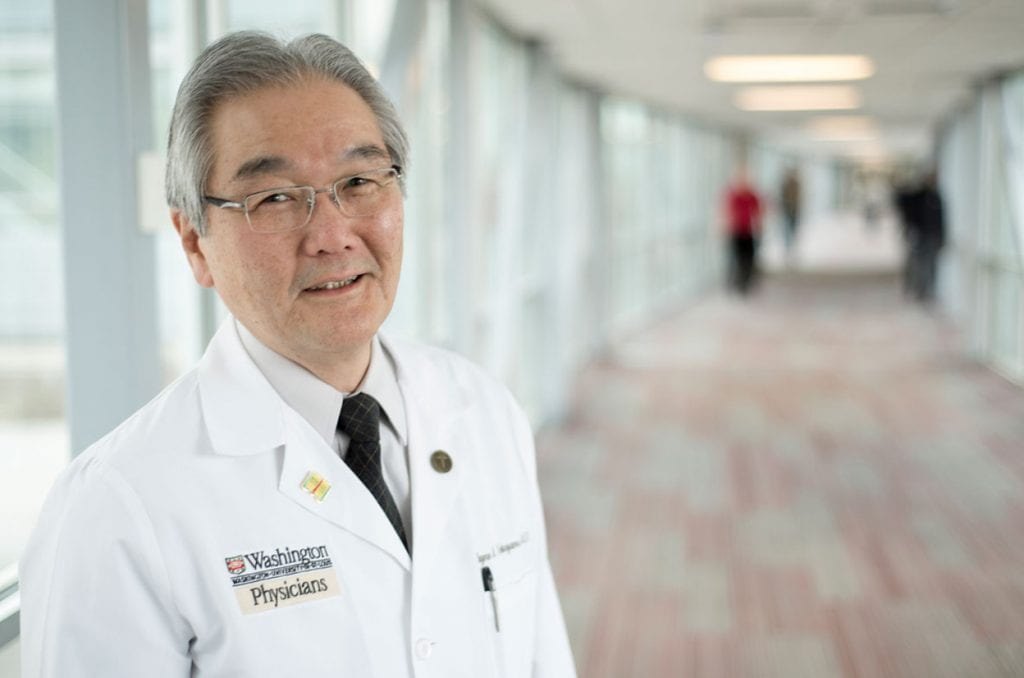Addressing a nationwide shortage of physician-scientists, Washington University School of Medicine in St. Louis has established a Division of Physician-Scientists to help nurture the career development of physicians who treat patients and also want to conduct scientific research.
The division will provide resources, mentorships, and research and leadership programs to encourage and inspire physicians interested in pursuing research.
Physician-scientists are considered crucial to developing new therapeutics and approaches to diagnosing and treating disease. For example, research by physician-scientists has served as the bedrock for hundreds of FDA-approved medications, including targeted cancer therapies, statins, HIV protease inhibitors and others, according to the nonprofit Physician-Scientist Support Foundation. The group also notes that within the past three decades, the proportion of physicians who conduct basic and laboratory research has dropped to 1.5% of the overall physician workforce.
“Washington University School of Medicine has long been a leader in developing and nurturing the careers of physician-scientists, and home to some of the most influential physician-researchers in the history of medicine,” said David H. Perlmutter, MD, executive vice chancellor for medical affairs, the George and Carol Bauer Dean of the School of Medicine, and the Spencer T. and Ann W. Olin Distinguished Professor. “We already have well-recognized postgraduate programs for physician-scientists, such as the Physician Scientist Training Program and other research-track residency and fellowship pathways in our departmental clinical training programs. The new division and programs are designed to capitalize on this legacy and provide additional resources for us to expand and enhance it.
“We will follow the wonderful recipe — the ‘secret sauce’ — that has distinguished us for generations but with an ambitious agenda to build new, innovative ways to recruit exceptionally talented MDs and MD/PhDs, support their careers and enhance their success.”
The division will be an arm of the dean’s office and will be headed by Wayne M. Yokoyama, MD, the Sam J. Levin and Audrey Loew Levin Professor of Arthritis Research, who has been named an associate dean, in addition to director of the new division. Yokoyama also directs the university’s highly regarded Medical Scientist Training Program — supported by a training grant from the National Institutes of Health (NIH) and substantial institutional commitments — which allows students to earn both an MD and a PhD in a scientific field. Additionally, he is internationally recognized for his research on natural killer cells in the body’s immune system, and is an elected member of the National Academy of Sciences and the National Academy of Medicine.
“Wayne is uniquely qualified for this new leadership role,” Perlmutter said. “He is a superb physician-scientist who has received worldwide acclaim for his research. He’s also spent the last 12 years running one of the most successful MSTPs in the United States. His enthusiasm and dedication have inspired leading physician-scientists both here and at other institutions.”
The new division will oversee two new programs: the Physician-Scientist Investigator Initiative and the Burroughs Wellcome Fund (BWF) Physician-Scientist Institutional Award project. The division also will serve as a central resource for other postgraduate physician-scientist training efforts across the Medical Campus.
The Physician-Scientist Investigator Initiative will target MD and MD/PhD researchers who will be approaching or are already at the associate or full professor rank and have established an elite track record of research contributions and funding. The School of Medicine has committed $40 million over the next decade to be used as part of highly competitive recruitment packages for such candidates. With seed funding from this commitment, the clinical departments will aim to attract the most talented physician-scientists in the U.S. and abroad. The details of how the initiative will be administered will be developed by the Executive Faculty over the coming year.
The BWF Physician-Scientist Institutional Award program, which was awarded and set into motion earlier this month, was established with a $2.5 million grant aimed primarily at MDs as part of their initial faculty appointments to the school’s clinical departments. The BWF award provides seed funding over five years that will help allow for stipends, pilot project funding, loan repayment, mentoring and enrichment activities. The School of Medicine and its departments plan to bolster the program further with an additional $6.6 million to supplement goals of the BWF grant.
“A common perception is that earning an MD/PhD is the only route toward becoming a physician-scientist,” Yokoyama said. “One of the goals of this new division is to show alternative routes for combining patient care and research. And by targeting specific career phases, the division can ensure there will be a pipeline of physician-scientists for the generations ahead.”
The new division will be committed to being broadly inclusive and to endeavor to enhance recruitment, training and retention of people who are underrepresented in the physician-scientist pool, including women and persons of color.
“This division will provide creative solutions to help reverse the dwindling number of physician-scientists, and will aim to bring into the field the minds, talents and passion of physicians who may have considered delving into scientific research, but have stopped at the gate for any number of reasons,” Perlmutter said. “The establishment of this division reflects the great importance research has at our institution, society’s need for more physician-scientists, and our desire to develop and support physicians who want scientific research in their careers. The school’s longstanding commitment to clinical care combined with research has contributed to influential scientific advancements. We believe this division will help shape even more game-changing scientists to address our world’s most pressing medical conundrums.”
